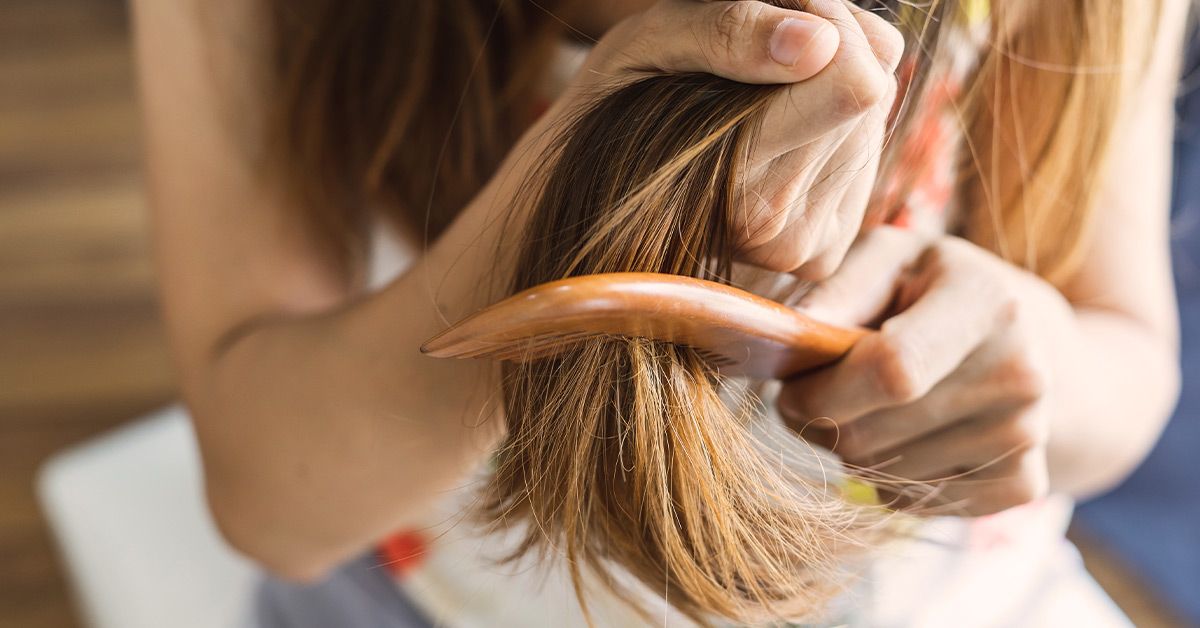Is Lavender Oil Beneficial for Your Hair? A Must-Read Guide from a Beautician
As a beautician, one of the most frequently asked questions from clients is whether lavender oil is beneficial for hair? Known for its delightful floral aroma and its significant role in aromatherapy, lavender oil has become an essential in many households. But is it merely a popular trend, or does it offer transformative advantages for hair health? In this revealing guide, we will explore why lavender oil takes a prominent spot in hair care and how it can enhance your professional offerings.
Combining scientific research, practical experiences, and longstanding beauty rituals, lets dive into how lavender oil might be exactly what your clients have been searching for.

Why is Lavender Oil Amazing for Hair?
Beyond its enchanting fragrance, lavender oil is packed with numerous benefits. This oil is derived from the Lavandula angustifolia plant through steam distillation, yielding a concentrated essence that is rich in substances such as linalool and linalyl acetate. These compounds are recognized for their potential to enhance scalp vitality and contribute to shiny, strong hair.
The key inquiry whether lavender oil is beneficial for hair has garnered attention from numerous scientific studies. Findings indicate that this essential oil may significantly encourage hair growth while alleviating problems such as dandruff and dryness. For more information, explore valuable insights on essential oils for hair health at Healthline.
How Lavender Oil Supports Scalp Health
Healthy hair starts with a healthy scalp, and heres how lavender oil can make a substantial difference:
- Its antibacterial properties help clear blocked hair follicles.
- The soothing nature of the oil mitigates inflammation, often a key factor behind scalp problems and hair loss.
- It boasts hydrating properties that ensure proper moisture for both scalp and hair.
Incorporating lavender oil into a routine of scalp massages can provide immediate relaxation along with these proven benefits. For guidance on professional usage of hair oils, refer to this article from Augustinus Bader.
Key Advantages of Lavender Oil for Hair Growth
When clients face challenges with thinning hair or receding hairlines, recommending lavender oil can feel almost transformative. Research conducted on mice has been scientifically validated, showing that lavender oil can enhance hair thickness, density, and the number of hair follicles.
What Beauticians Should Know About Application
As a professional, its essential to utilize the appropriate techniques to achieve optimal results. Typically, lavender oil is mixed with a carrier oil such as coconut oil or jojoba oil prior to application. Gently apply the combination to the scalp in a circular motion. For maximum efficacy, leave it on for 30 minutes or overnight, adjusted according to individual hair types and concerns.
To discover other oils that can complement or amplify the effects of lavender oil, check out this roundup of recommended oils at La Tourangelle.
The Role of Lavender Oil in Dandruff Management
Dandruff can be a persistent dilemma for numerous clients, often leading to embarrassment and unease. As a professional, you can offer a significant solution by integrating lavender oil into their routine. The oils inherent antifungal and antibacterial traits help combat the fungi responsible for dandruff, while its moisturizing qualities soothe itchy, flaky scalps.
Simple DIY Lavender Oil Recipes for Beauticians
Here are some easy, trusted lavender oil DIY recipes that even beginner beauticians can prepare and recommend:
- Lavender Hair Serum: Blend 10 drops of lavender oil, 5 drops of rosemary oil, and 2 tablespoons of argan oil for a light serum.
- Anti-Dandruff Mix: Combine 2 teaspoons of tea tree oil, 2 teaspoons of lavender oil, and 4 tablespoons of almond oil for dandruff relief. For a more robust antifungal regimen, consider this antifungal soap.
- Lavender Hot Oil Treatment: Mix equal parts of lavender and castor oil. Warm gently and apply.
For a list of oils tailored to specific hair types, visit Function of Beauty.
FAQs About Lavender Oil for Hair
Are There Any Side Effects of Lavender Oil?
When used correctly and diluted with a carrier oil, lavender oil is unlikely to irritate the skin. Nonetheless, conducting a patch test is advisable, particularly for clients with sensitive skin.
How Often Should Lavender Oil Be Applied?
For the best results, lavender oil applications should occur 2-3 times weekly. Excessive use may result in oil accumulation on the scalp, so moderation is crucial.
Is Lavender Oil Suitable for All Types of Hair?
Indeed, lavender oil is appropriate for every hair type. Whether clients have curly, straight, dry, or oily hair, its application can be customized to meet individual needs.

Final Thoughts
So, is lavender oil good for hair? Certainly! This remarkable essential oil delivers a plethora of benefits ranging from improved hair growth to dandruff resolution and enhanced scalp health. As a beautician, educating your clients on incorporating lavender oil into their routines can strengthen their confidence in your expertise. If you haven't started utilizing this natural wonder in your services yet, now is the perfect time!
This article contains affiliate links. We may earn a commission at no extra cost to you.
